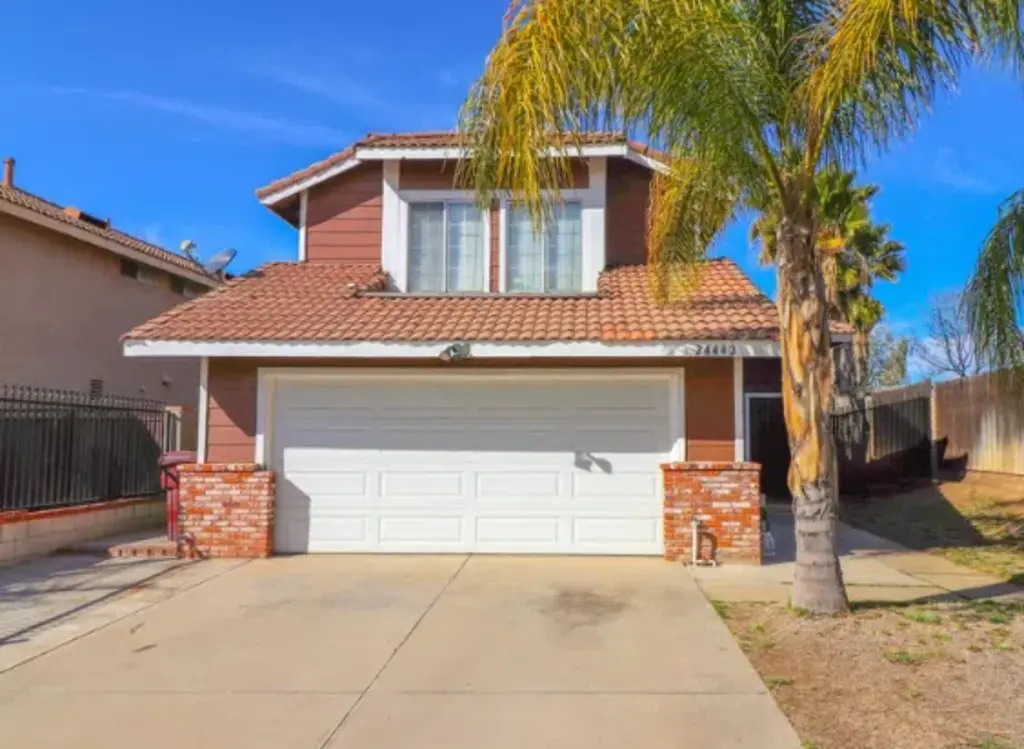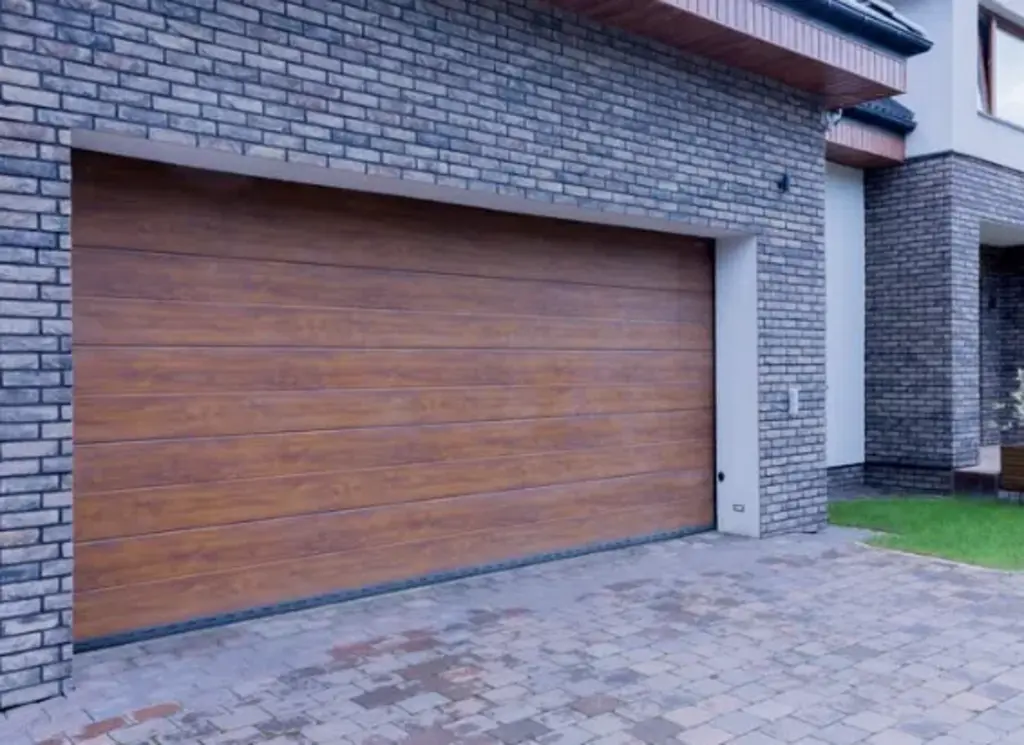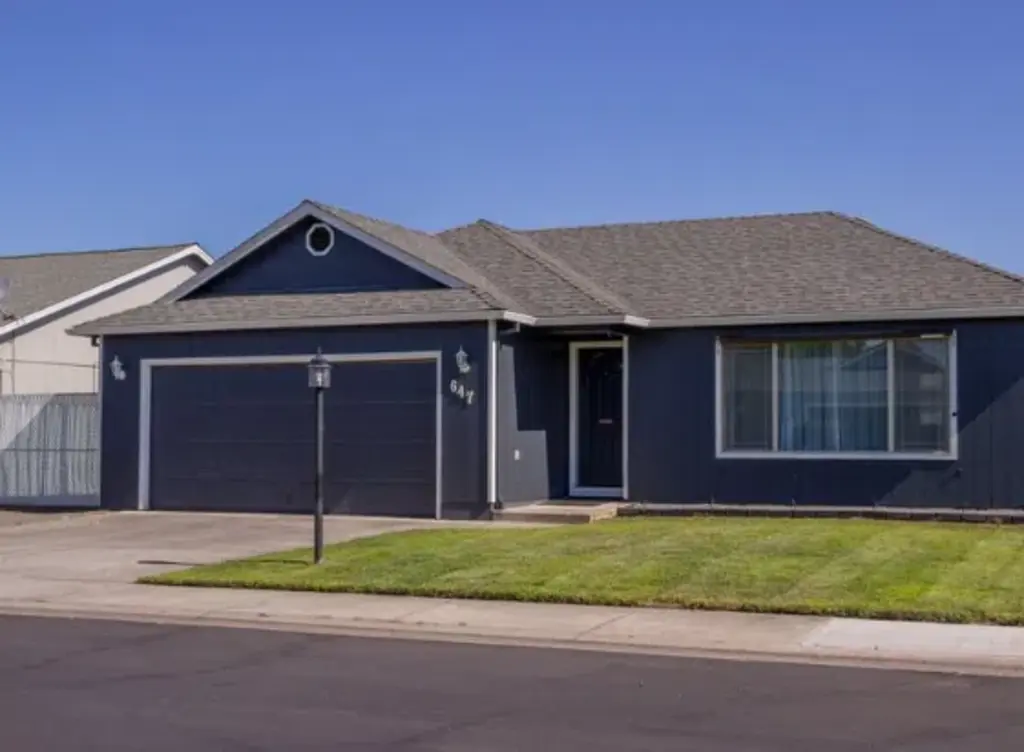Are you wondering how many years a garage door lasts? Learn about average lifespans, maintenance tips, and signs it’s time to replace it!
A garage door does more than open and close. It keeps your home safe and makes it look better. So, how many years does a garage door last? Most last between 15 and 30 years, depending on the material, how often you use it, and how well you take care of it.

Knowing how long your garage door lasts helps you avoid high repair costs. This guide shares what affects its life and how to keep it working longer. For easy and safe care, hire a garage door expert. They can help it run smoothly and fix small problems before they get worse.
How Many Years Does a Garage Door Last
Knowing how long a garage door lasts helps you plan for repairs or a new one. Most garage doors work well for 15 to 30 years, depending on how well they’re cared for.
The material and weather in your area also affect the life of your garage door. Regular maintenance can help extend its life and avoid costly repairs.
Factors Influencing Garage Door Lifespan
- Material: Steel doors last 20-30 years, wood doors 15-25 years, and aluminum doors 15-20 years.
- Usage Frequency: Heavy daily use shortens lifespan compared to occasional use.
- Climate: Extreme weather (humidity, snow, salt air) accelerates wear.
- Maintenance: Regular upkeep extends longevity significantly.
By knowing these factors, you can better estimate how many years does a garage door lasts in your specific situation.
What Are the Most Durable Garage Door Materials
Different materials impact how long your garage door will last. Here’s a breakdown of popular options and their expected lifespans:
1. Steel Garage Doors
Steel garage doors are very strong and can last a long time. They don’t need much care if coated well. Steel doesn’t rust easily and works well in bad weather. This is a great choice if you want something tough and easy to keep up.
2. Wood Garage Doors

Wood garage doors look nice and give your home a classic look. But they need regular care, like painting or staining. If not, they can rot or bend. They work best in places with mild weather and little rain or moisture.
3. Aluminum/Fiberglass Doors
Aluminum and fiberglass doors are light and don’t rust. They last a reasonable amount of time and don’t need much care. Fiberglass looks like wood but handles wet and salty air better. These doors are suitable for homes near the beach or with changing weather.
What Are the Signs That Your Garage Door Needs to Be Replaced
Recognizing when your garage door fails can prevent safety hazards and costly repairs. Here are key indicators that it’s time for a replacement:
1. Excessive Noise and Slow Operation
If your garage door makes loud sounds or moves slowly, parts like the springs, rollers, or motor might be worn out. Adding oil might help for a while, but if the problem continues, it could be time to consider a full garage door repair service.
2. Visible Wear and Damage
Look for dents, rust, cracks, or bent panels. These signs show your garage door is getting weak. A damaged door can let air in and make your home less safe and less energy efficient. It may also stop your garage from working the way it should.
3. Frequent Repairs
Getting a new garage door may be a better choice if you often fix parts like springs, cables, or openers. Constant repairs cost money and time. A new garage door works better, saves you from future trouble, and makes daily use easier and safer.
4. Rising Energy Bills
When your garage door has poor insulation or small gaps, it lets warm or cool air out. This makes your energy bills go up. A newer, well-insulated garage door keeps your garage more comfortable and helps lower your heating and cooling costs.
How Weather and Climate Affect Garage Door Longevity
Environmental factors play a huge role in determining how many years does a garage door lasts. Here’s how different climates impact durability:
1. Humid or Coastal Areas
Garage doors can rust or rot faster if you live near the ocean or in a humid place. Steel can rust, and wood can rot from the moisture. Aluminum or fiberglass doors are better because they don’t rust and last longer in wet air.
2. Cold, Snowy Regions
Cold weather stresses garage door parts like springs and openers. In snowy places, insulated steel doors with strong seals work best. They help keep the cold out, protect the parts from freezing, and make your garage more comfortable all year.
3. Hot, Dry Climates

The sun can fade paint and damage wood in hot and sunny areas. Wood may crack or warp. A garage door with UV protection is a smart choice. It can handle the heat, keep its shape, and stay looking good for a long time.
How to Extend the Lifespan of Your Garage Door
Maximizing your garage door’s longevity saves money and ensures smooth operation. Follow these expert tips to keep it functioning for years:
1. Perform Regular Maintenance
Keep your garage door working by oiling the rollers, springs, and hinges every six months. Check for loose bolts and fix them. Look at the weather strips for cracks. Doing small checks often helps stop big problems and makes your garage door last longer.
2. Clean and Protect the Door
Wash your steel or aluminum garage door with mild soap and water to stop rust. If you have a wooden door, repaint or seal it every 2 to 3 years. This keeps out water and sun that can cause the wood to crack or rot.
3. Balance and Alignment Checks
If your garage door isn’t balanced, it can wear out the opener and springs faster. To check, unhook the opener and lift the door by hand. If it stays halfway up without moving, it’s balanced. If it drops or rises, it needs fixing.
4. Replace Worn-Out Parts Early
Change old parts before they break. If you see a frayed cable, bent roller, or weak spring, replace it immediately. This stops more damage and keeps your garage door working safely. Fixing small problems early saves money and avoids big repairs later.
How to Choose a Garage Door That Lasts for Years
Selecting a durable garage door ensures it lasts as long as possible. Consider these factors when choosing a replacement:
1. Material Matters

2. Insulation and Weather Resistance
An insulated garage door helps keep your garage warm in winter and cool in summer. It takes pressure off the opener and makes the door last longer. Insulated doors are great in places with strong weather and can help lower your home’s energy bills too.
3. Professional Installation
If a garage door isn’t installed correctly, it can break faster and may not open or close smoothly. That’s why it’s smart to get garage door installation services. A skilled installer will make sure everything works right and helps your door last longer.
Frequently Asked Questions
How often should you replace your garage door?
Depending on its material, usage, and care, your garage door should be replaced every 15 to 30 years. Regular garage door maintenance can extend its life, but signs like loud noises or poor function may mean it’s time for a new one.
What is the average lifespan of a garage door?
With proper care, the average lifespan of a garage door is around 20 years. Factors like weather, frequency of use, and maintenance affect its longevity. A high-quality garage door that’s regularly serviced usually lasts longer and works more smoothly.
How do you know when your garage door needs to be replaced?
You’ll know it’s time to replace your garage door if it’s making loud noises, has frequent issues, or looks worn out. Other signs include slow movement, lack of safety features, or outdated design that lowers your home’s curb appeal and efficiency.
What is the durability of a garage door?
The durability of a garage door depends on its material and how well it’s maintained. Steel and fiberglass doors often last longer and handle harsh weather better. A durable garage door resists damage, operates smoothly, and protects your garage for many years.
What is the useful life of a garage door?
The useful life of a garage door is usually between 15 and 30 years. This can vary based on the door’s quality, material, and how often you maintain it. A garage door that’s regularly cleaned, lubricated, and inspected tends to last much longer.
Conclusion
“How many years does a garage door last?” is something every homeowner should consider. The answer depends on how well the door is cared for. Regular maintenance can help extend its life and reduce the chances of costly garage door repair services later on.
Most garage doors last 20 to 30 years with proper care. Daily use, rough weather, and worn-out parts can cause early wear. With regular checks and quick fixes, small issues can be handled before they turn into major problems.
Meadows Garage Doors provides trusted help when it’s time for repairs or a new garage door. Our team is here to make sure your door works smoothly, stays secure, and adds to your home’s overall value for many years.
End Note
If you need a trusted company for a reliable garage door opener, Meadows Garage Doors is here to help. We offer top-quality openers and expert service. Visit our website to explore the best options for your home today.
Check out our full garage door service and reliable garage door openers in Trophy Club, TX. Want to see real results? Watch our video gallery or browse completed projects. We proudly serve many local areas, including Highland Village, TX.
Learn more about us and meet the team behind our quality work. Read customer reviews and blogs for expert tips. Stay connected with us on Facebook, Instagram, LinkedIn, or Yelp. We’re here when you need us most.
Meadows Garage Doors
1741 N US Hwy 377 Suite 125, Roanoke, TX 76262, United States
+18174151175





